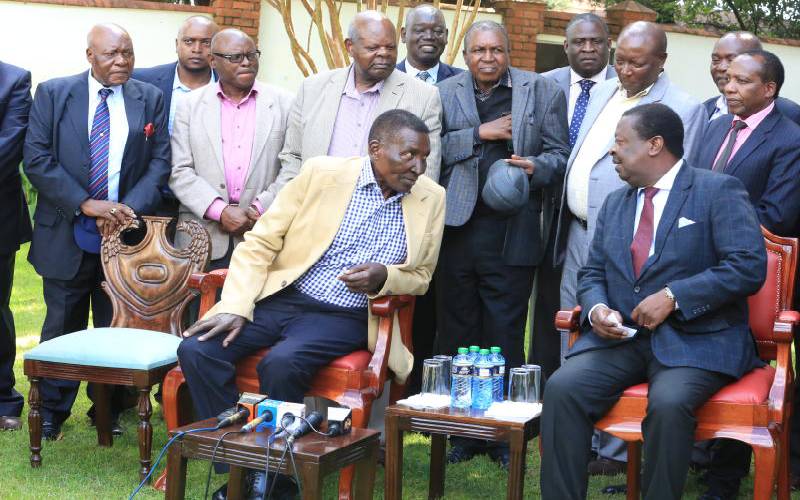×
The Standard e-Paper
Home To Bold Columnists

Amani party leader Musalia Mudavadi talks to Kiambu veteran politician Nginyo Kariuki at his home in Tigoni, Limuru. He met leaders and elders from western and central Kenya. [Standard]
ANC leader Musalia Mudavadi is angling himself as the best bet in succeeding President Uhuru Kenyatta, presenting himself as a less divisive politician that will bring the magic unity to the politically-charged nation.